Türkiye’s intelligence director Ibrahim Kalın and Hamas political bureau deputy chief Khalil Hayye discussed the proposed Gaza cease-fire, Turkish diplomatic sources said Monday.
Kalın and Hayye held a phone call to discuss the latest situation regarding the cease-fire proposal conveyed to Hamas by U.S. special representative Steven Witkoff, sources said.
The two officials agreed the cease-fire negotiations mediated by the U.S., Qatar and Egypt must continue, while Kalın stressed that the international community must increase its pressure on Israel in order to end the humanitarian tragedy in Gaza, sources said.
Kalın also underscored urgent steps must be taken to ensure a prisoner exchange and humanitarian aid transit.
Türkiye is working with the international community to end the crisis and destruction in Gaza and facilitate uninterrupted humanitarian aid deliveries into the battered enclave, Kalın assured Hayye.
Türkiye wlll always stand by the Palestinian people, Kalın told Hayye.
NATO member Türkiye has been a traditional ally to Palestine, but the more brutal Israeli attacks became, the harsher Ankara has made its criticism. It has condemned what it calls genocide, halted all trade with Israel and applied to join a genocide case against Israel at the World Court, which Israel rejects.
Türkiye also maintains close ties with Hamas, which President Recep Tayyip Erdoğan deems a “liberation organization,” unlike Western nations, which classify it as a terrorist group.
In addition to delivering humanitarian aid, the Turkish government has sought to rally international organizations, including the United Nations, NATO, and the Organisation of Islamic Cooperation (OIC), to both restrain Israel and encourage cooperation between Palestinian factions, most notably between Hamas and the Fatah movement.
US proposal
Hamas on Sunday denied rejecting Witkoff’s proposal for a Gaza cease-fire, accusing Israel of undermining negotiations to end the war in the enclave.
“We agreed with Mr. Witkov last week on a proposal that he considered acceptable as a proposal for negotiation. We received the other party’s response, which did not agree with any of the items we agreed upon and did not meet the minimum requirements of our people,” senior Hamas member Basem Naim said in a statement.
He said Hamas responded “positively and responsibly” to Witkoff’s proposal to ensure Israel’s respect for a 60-day cease-fire and the entry of humanitarian aid.
“We also sought to ensure that the negotiations would lead to an end to the war and withdrawal of Israeli forces,” Naim added.
The Hamas leader said Israel has refused to give guarantees to ensure respect for the 60-day cease-fire and access to humanitarian aid.
Naim said Israel “wants to negotiate the withdrawal maps agreed upon on Jan. 19 based on the occupation’s new military presence.”
“(Israel refuses) to give guarantees that the war will cease and that enemy forces will withdraw at the end of the negotiations,” he added.
Under the framework of the proposal, the movement proposed releasing 10 Israeli captives and handing over the bodies of 18 others in exchange for an agreed-upon number of Palestinian prisoners.
While Hamas did not provide further details, Israeli and U.S. media, as well as Palestinian sources close to the Hamas movement, earlier reported that the proposal includes a prisoner exchange in which 10 Israelis would be released in exchange for 125 Palestinian prisoners serving life sentences, 1,111 detainees from Gaza captured after Oct. 7, 2023, and 180 Palestinian bodies.
The releases would be carried out simultaneously and in two phases – the first on day one and the second on day seven –with no public ceremonies.
The proposal also stipulates that humanitarian aid would enter Gaza immediately after approval, to be distributed by the United Nations and the Red Crescent, with a guarantee of maintaining the cease-fire throughout the agreement period and any subsequent extension.
The terms also include a redeployment of Israeli forces inside Gaza after the exchange phases are completed, starting from the northern part of the Strip and the Netzarim corridor, down to the south.
Israel has pursued a devastating offensive in Gaza since October 2023, killing nearly 54,400 Palestinians, most of them women and children. Aid agencies have warned about the risk of famine among the enclave’s more than 2 million population.
Last November, the International Criminal Court (ICC) issued arrest warrants for Israeli Prime Minister Benjamin Netanyahu and his former Defense Minister Yoav Gallant for war crimes and crimes against humanity in Gaza.
Israel also faces a genocide case at the International Court of Justice (ICJ) for its war crimes against civilians in the enclave.

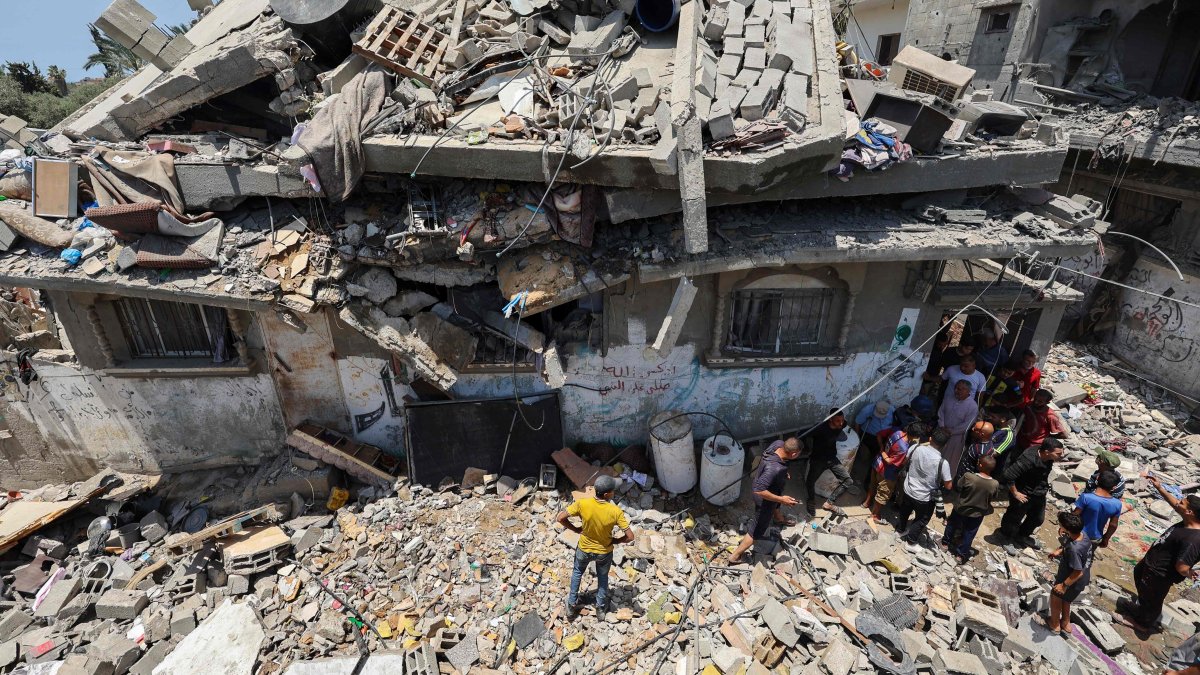
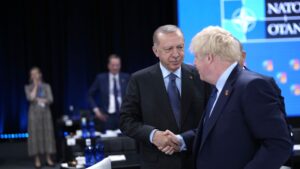



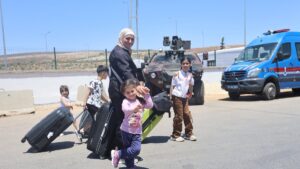

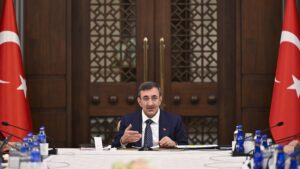

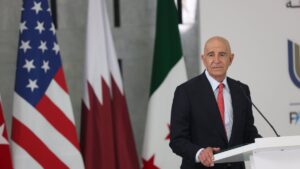
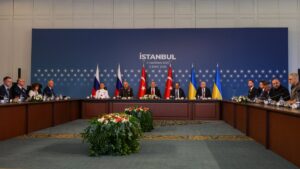

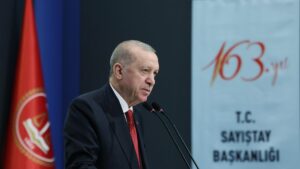
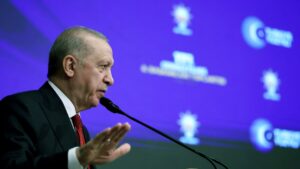
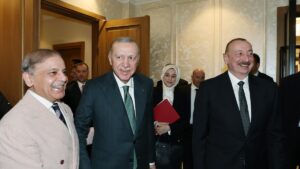

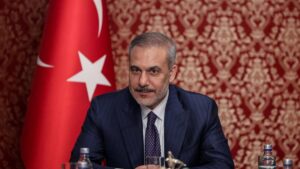
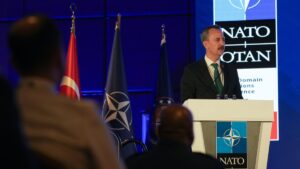
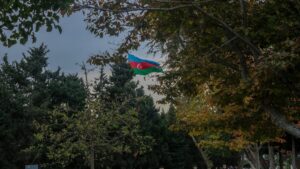



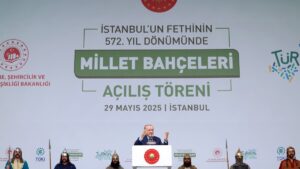


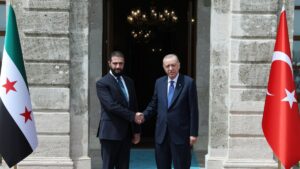


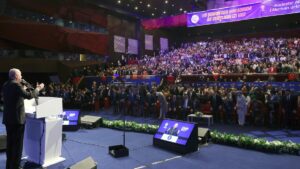
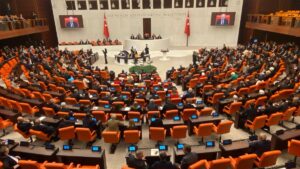
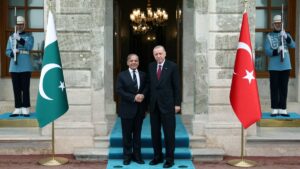


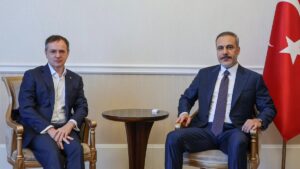




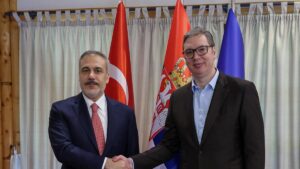


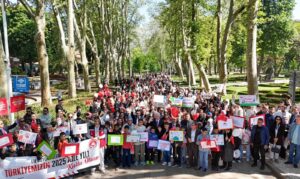



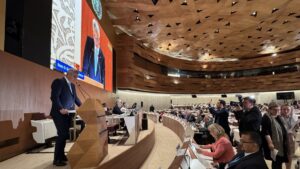
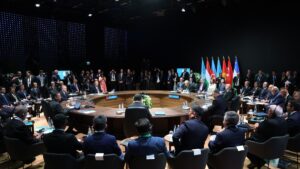
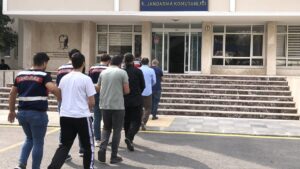

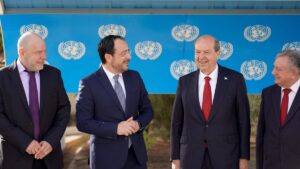
Be First to Comment